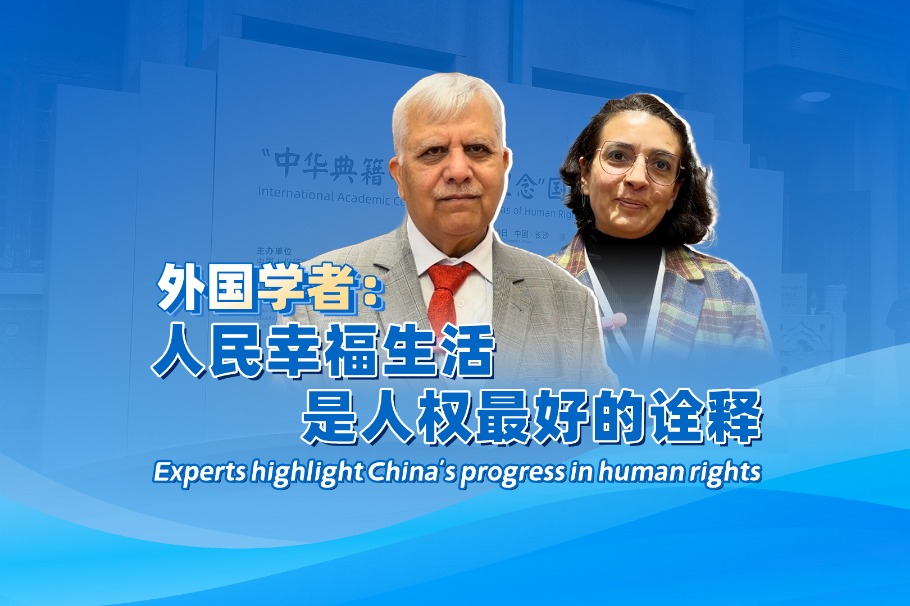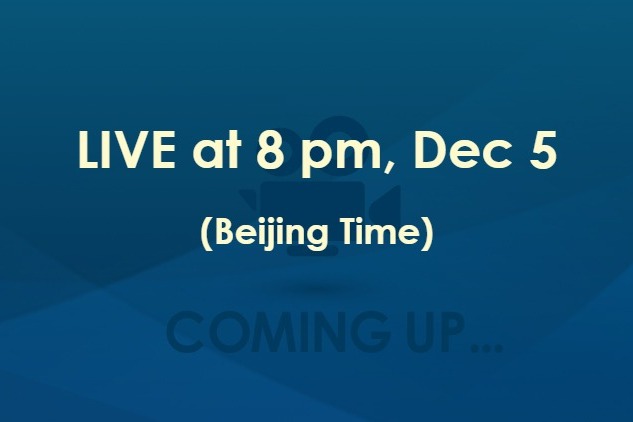Constructive tone fuels hopes on ties
By YIFAN XU in Washington | China Daily | Updated: 2022-11-22 07:32
Willingness by Xi, Biden to restore dialogue channels wins praise
Experts on relations between China and the United States have expressed their hopes for more communication between the two major powers.
Scott Kennedy, a senior adviser and trustee chair in Chinese business and economics at the Center for Strategic and International Studies, said at the "A Washingtonian in Beijing" gathering last week that "the chances for more communication are pretty high" between China and the US.
Wang Jisi, president of Peking University's Institute of International and Strategic Studies, moderated the online event in Beijing.
The scholars discussed the meeting between Chinese President Xi Jinping and US President Joe Biden on the sidelines of the G20 Summit in Bali, Indonesia, on Nov 14. The talks marked the first in-person meeting between the two as presidents.
Both leaders expressed their willingness to seek to repair China-US relations, which have been at their lowest point in decades, and restore channels of communication.
Kennedy said the words of the leaders during their meeting, and in comments afterward, had reduced the temperature and helped steer relations away from a path of open conflict.
"First of all, they had an extended dialogue, for three-and-a-half hours, much longer than originally planned, and they committed to greater communication. They formed several working groups that will, on a regular basis, meet and discuss a wide range of issues affecting the bilateral relationship," Kennedy said. " (US) Secretary of State (Antony) Blinken is going to travel to China in early January, probably to help put those working groups together and perhaps address other issues in the relationship. And to me, that's very healthy."
Wang expressed similar views. He said that Xi and Biden had had discussions on five occasions — by phone and video link — since Biden took office as president in January 2021. However, the one in Bali was the most interesting, productive and constructive.
Encouraging talks
"I hope that will be continued," Wang said. "I think we should encourage more dialogues between the two sides, between the two governments, and between the two societies, including scholars and educators and think-tank people."
He also said that it may not yet be the time to hold large-scale strategic dialogue, such as sending a delegation to visit the other side, as government officials may not be ready for such an exchange.
"But at this moment, the summit meeting revealed the two sides agreed to have working groups, and I think the working groups may be more effective than the overall large gathering between the two sides. And that may pave the way for better relations in the future," Wang said.
Both experts said they expected more participation and communication between China and the US in academic and other areas. "I do think that there are more conversations ongoing," Kennedy said.
Sourabh Gupta, a senior fellow at the Institute for China-America Studies in Washington, said in an interview with China Daily that relationships, whether between people or major countries, are difficult to build but easy to tear apart.
As a cycle of "trust-based communications takes hold, countries are able to not just manage but also transcend some of their differences", he said. "Given the centrality of China-US relations and their multifaceted character, predictable and stable communications at the leaders' and senior officials' level is not just welcome — it is an imperative," Gupta said.
He described the summit in Bali as "heartening" and beginning "the process of healing as well as placing bilateral ties on an upward trajectory". Gupta said that understandings reached at the highest levels should be translated into action.
"To dispel mistrust from creeping in, there is a need for more, not less, communications across the board at the senior officials' level," Gupta said.
























